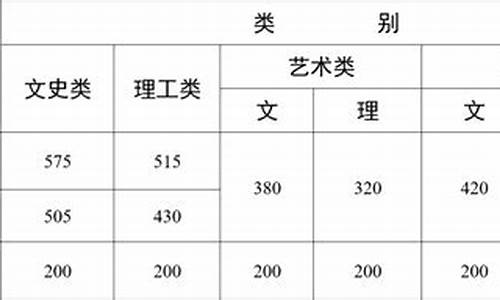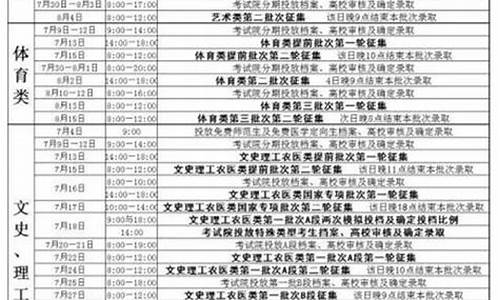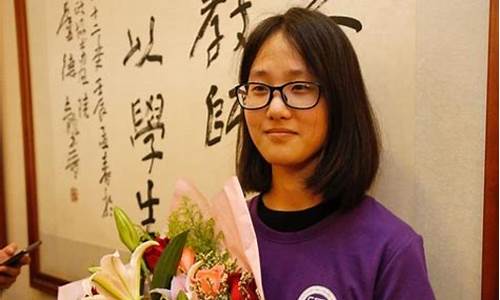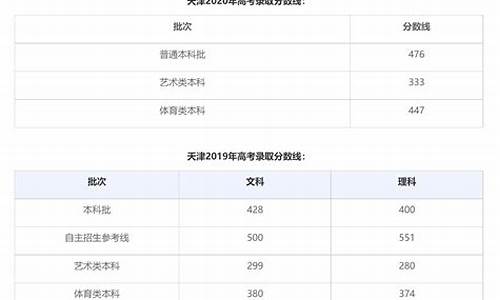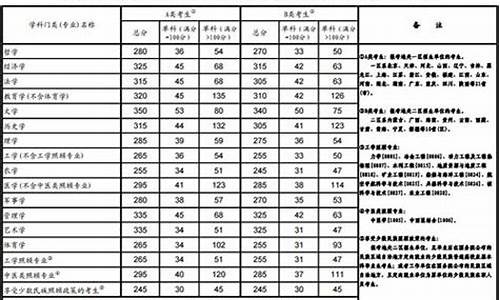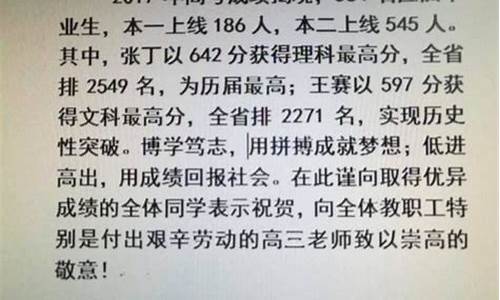2001高考英语试题,2001高考英语
1.2000~2005天津高考英语作文题目
2.2001年高考总分江西

750分。2001年高考满分750,语文和英语每科150,综合成绩300。安徽高考科目与现如今安徽省高考科目没有什么区别,依然是3+文科综合/理科综合。文综包括历史,地理,政治,理综包括生物,化学,物理。
2000~2005天津高考英语作文题目
A My pleasure
才是正确的。 这个是以前的2003年考试题目。
请参考:以下内容:
高考英语日常交际用语专题
一.[高考走向]
日常交际用语近五年高考复现率
考查要点年 份
交际用语
题 量
1996 第9题 1
1997 第 8,15题 2
1998 第7,15 题 2
1999 第6题 1
2000 第6,9题 2
2001 第21题 1
2002 第21题 1
2003 第35题 1
二、NMET 的命题原则
1 语言必须放在实际的并尽可能不同的情景中运用。
2 语言必须适合于具体的交际行为:语言适宜性。
3 考核的焦点在于是否达到交际目的。
4 语言的交际行为除了需要语言能力外,还需要一些其他的交际能力。
从这四条可看出,学生的交际能力是考核的焦点,也是教学重点。
1. 日常交际用语的分类如:见面打招呼,介绍告别与应答;祝愿:道歉、遗憾,提供帮助和应答;同意和不同意;判断和意见,职责、能力、偏爱、责备和抱怨,预见、猜测和建议。(见大纲交际用法第1-30)
2. 情景对话:
主要指在固定语言环境中所使用的一些语言。包括:谈论天气,购物,问路,打电话,就餐,看病,求救等。(见大纲交际用法第31-41)
三、Analysis of NMET
1.Agreement and Disagreement
2.Thanks and apology
3.Omission
(一)Agreement and Disagreement 英美人表示自己的意见是同意还是不同意,口气很婉转,设问的形式,虚拟语气的使用,都能体现出英语委婉的特点。
1.NMET 1997---15---I’d like to invite you to dinner this Saturday,Mr.Smith. ---____.
A.Oh,no, let’s not B.I’d rather stay at home. C. I’m very sorry, but I have other plans
D. Oh, no, That’ll be too much trouble答案:C解析:该题考察被邀请时应答的用语。对客气的邀请要礼貌地回答。答应要表示感谢,回绝要表示歉意并申述理由。当然也可以表示谢意。
当接受别人的邀请时,常用:
Yes,I’d love to.
Yes, it’s very kind/nice of you;
Yes, with pleasure.
在回绝邀请时为了使语气委婉常用:
I’d like to, but I’m too busy.
I wish I could accept your invitation, but I’m afraid I don’t have time to go.
I really enjoy it, but I’ve got to go now.
Thank you for your kindness, but I’ve got an appointment at that time.
注意这些句中but所表达的转折、婉转语气,以及高考中考查but用法的要求。
2.NMET 1998—15
---Can I get you a cup of tea?
---_____.
A. That’s very nice of you
B. With pleasure
C. You can, please
D. Thank you for the tea
答案:A解析:本题考察提供建议与应答。回答别人建议时,无论赞同或拒绝都是Thank you或Thanks,为明确最好用Yes, thanks/thank you或No,thanks/thank you.该题之所以不选D 是因为Thank you 之后多了for the tea三个词,Thank you for the tea 是在喝完茶后为了对别人感谢而说的。故选A表示感谢。
3. NMET 2000---6
---What about having a drink?
---____.
A. Good idea B. Help yourself
C. Go ahead, please D. Me, too
答案:A解析:本题考察另一种与建议有关的特殊句型What about/How about…? Why don’t you…? Why not…?的应答。对这类句型的回答因为要表达对别人建议的看法,所以常见答语为Good idea./That`s great./ Maybe I should 等。
4. NMET 2000---9
---Waiter?
---____
---I can’t eat this. It’s too salty.
A.Yes, sir? B.What?
C.All right. D.Pardon?
答案:A 解析:该题答案为A。是Waiter 对客人的应承语,而且其中包含着“您有事吗?” “您有什么事?” 一类意思。what是对具体内容的上下文作提问。
5. NMET 1999---6
---I had a really good weekend at my uncle’s.
---___.
A. Oh,that very nice of you
B. Congratulations
C.It’s a pleasure
D.Oh,I’m glad to hear that
D
解析:该题答案为D。表示“附和”别人所说的愉快事。如:
---I have succeeded in the English test.
---We are glad to hear that.
若表示“附和” 别人所说的不愉快的事,可用I’m sorry to hear that 等。答案A为对别人盛情等的答谢用语。再如:
---Come to our party, please.
---It’s very nice of you to invite us to it.
答案B则为祝贺用语。(常用于对别人的成功,胜利等的祝贺) 答案C为接受别人道谢或被别人介绍时的应答语。
(二)Thanks and Apology
表示感谢和道歉的方法多种多样,特别是许多中国人勿须感谢、道歉的场合,英美人都要有意无意地感谢、道歉一番。对感谢、道歉的答语,也各式各样。中国人与英美人表达自己心情的方式也各不相同。这些语言习惯可能成为命题的注意点。
1.1997 Shanghai
---Thank you ever so much for the book you sent me.
--- ___.
A.No, thanks B.I’m glad you like it
C.Please,don’t say so D.No,it’s not so good
答案:B解析:该题考察有关“感谢与应答”的方法。对别人赠送的礼物,不论轻重,都要表示感谢。这是礼貌。中国人往往采取一种谦逊的态度;而英美人却以迎合的态度来表达自己的心情。
(2003AIHEI.S)—Thanks for the lovely party and the delicious food.
----________.
A. No thanks B. Never mind C. All right. D. My pleasure.
答案:D解析: 该题考察有关“感谢与应答”的方法: You ‘re welcome/That’s all right /it is a pleasure/my pleasure./Don’t mention it.
(2002BEIJING .35) ---It’s been a wonderful evening .Thank you very much.
--- A. My pleasure B. I’m glad to hear that. C. No thanks. D. It’s OK.
答案:A.
2.NMET 1996---9---I am sorry I broke your mirror.
---Oh,really? ____.
A.It’s OK with me B.It doesn’t matter
C.Don’t be sorry D.I don’t care
B解析:回答别人的道歉时常用的句型有:
That`s all right. It doesn’t matter.
Never mind. That’s nothing. That’s OK
3.(2003BEIJING.S.23)--- I’m sorry I’m calling you so late.
----okay.
A. This is B. You are That’s D. I’m
解析C.
(三)Omission省略句在口语中大量出现,交际用语的考查,也常和省略句的考查联系在一起。句中哪些成分可以省略,哪些成分不能省略,哪些成分省略后意思会改变,这些也要予以足够的重视。
1.NMET 1998---7---You haven’t been to Beijing,have you?
---___.How I wish to go there !
A. Yes,I have B.Yes, I haven’t
C. No, I have D. No,I haven’t
答案:D解析:本题答语中既然出现 How I wish to go there, 则表明答话者没去过北京。当回答“前否定、后肯定”式的反意问句时,答语中的Yes和No,与汉语的意义相反。英语语言的答语中Yes和No,与其后面省略的 答语形式必须保持一致。
2.NMET 1994---13---Do you think it’s going to rain over the weekend ?
---___.
A.I don’t believe B. I don’t believe it
C.I believe not so D. I believe not答案:D解析:口语中,在上下文明确时,常用省略句。believe 一词肯定形式为 I believe so,so替代上文 It’s going to rain over the weekend.一句话。其否定式为:I believe not. 或 I don’t believe so。类似的词还有:suppose,think,fear ,expect, imagine等,皆有此用法。另外:hear,hope,be afraid 否定形式只有:I fear not. I hope not. I’m afraid not. 没有: I don’t hope so.
四、创新练习
1.---How did you find the lecture given by the professor from Wuhan University this afternoon ?
--- ____.
A. It was about computer science B. It was a bit boring
C. I found nothing in it D. It’s a pleasure
2. ---I wonder if I could use your bicycle for an hour. 4.---I just heard that the ---_____.
A. Yes, you could B. I’m afraid you mustn’t
C.Why not? Do it for yourself. D. Of course. Go ahead
3.____.I’m in no hurry.
A.Come to your time B. Don’t be nervous
C.Take it easy D.Why don’t you do it earlier
4.---I just heard that the tickets for tonight’s show have been sold out.
---Oh, no! _____.
A. I was looking forward to that B. It doesn’t matter
C. I know it already D. It’s not at all interesting5.---I believe we’ve met somewhere before.
---No,_____.
A.It isn’t the same B.it can’t be the truth
C. I don’t think so D. I’d rather not
6.---I didn’t know this was a one-way street, officer.
----_____.
A. That’s all right B. I don’t believe you
C. How dare you say that D. sorry. but that’s no excuse
7.--- Do you mind if I keep pets in this building ?
---_____.
A. I’d rather you didn’t, actually
B. Of course not, It’s not allowed here
C. Great! I love pets D. No, you can’t
8.---I don’t have any change with me. Will you pay the fare for me ?
---____.
A.That’s fine B. Nothing serious
C. Never mind D. No problem9.---Shall I help you with that suit case ?
---____.
A. It’s all right, thanks B. Yes, go ahead, please
C. I don’t want to trouble you too much
D. No, please don’t do it
10. ---You’ve given us a wonderful Chinese dinner, Mrs. Wang.
---____.
A. Oh, I’m afraid I didn’t cook very well
B. I’m glad you enjoy it
C. Come again when you are free
D. It’s not necessary for you to say so
11. ---You’ve won the football game. Congratulations !
----______.
A. It’s nice of you to say so B. We are really lucky C. No one else could do it D. Oh, not really
12. --- I’ll meet you outside the cinema in an hour, OK ?
----____.
A. No, 2 hours later B. Yes, that’s a good idea
C. Ok, but I can manage D. No, I don’t think so
13. ---You tie goes very well with your shirt.
---_____
A.Oh, I got it on sale . B. I bought it at half price.
C. Does it really look OK ? D. No, not so nice.
14.---I wonder what the weather will be like tomorrow ?
--- _____
A. I don’t like the weather at this time of year.
B. I don’t mind if it is going to rain tomorrow.
C. Why don’t you read the newspaper yourself ?
D. Let’s listen to the weather report on the radio at ten.
16. ---Excuse me, you left this bag in the shop.
---____.
A. It’s not my fault B. Oh, thank you
C. I am sorry, I’m busy D. It’s mine !
17. ---Have you any oranges and apple ?
---_____.
A. Yes, madam, on the second shelf over there
B. The orange are very cheap
C. You like apples, don’t you ?
D. Of course, we have some fruits
18. ---____
---Drop in if you have time.
----Sure. Bye !
A. Well, I really must be going now
B. I wonder if you could let me go now.
C. Do you mind if I leave now ?
D. What a shame that I want to go now.
19. ---Can I help you sir ?
---_____.
A. Yes, you can help me B. No, I don’t need any help
C. Of course, if you like D.No, thanks, I’m being served
20. ---I wish you wouldn’t have your TV so loud.
---_____. Were you trying to sleep ?
A. That’s all right B. OK
C. Sorry D. Thank you
答案:1—5:b d c a c 6—10: d a d a b
11—15: a b c d c 16—20: b a b c c
2001年高考总分江西
2001年
假设你是李华,你的澳大利亚朋友Dick听说中国的中小学正在减轻学生的学习负担,来信询问有关情况。请你根据下表提供的信息,写一封回信,谈一谈减负给你的学习和生活带来的变化。
周末活动(减负前) 周末活动(减负后)
白天:上课、做作业 白天:参观博物馆、学习电脑、绘画等
晚上:做作业 晚上:看新闻、读书、看报
就寝时间:11:30 就寝时间:10:00
2002年
最近,你校同学正在参加某英文报组织的一场讨论。讨论的主题:公园要不要收门票?请你根据下表所提供的信息,给报社写一封信,客观的介绍讨论情况。
60%的同学认为: 40%的同学认为:
1、不应收门票 1、应收门票,但票价不宜高
2、公园是公众休闲的地方 2、支付园林工人工资
3、如收门票,需建大门、 3、购新花木
围墙,会影响城市形象
2004年
假设你班将举行一次英语班会,主题为“中学生应该如何使用家长给的零花钱”。请你根据提示写一篇发言稿。
使用方式 好处
存入银行 养成节约的习惯
购买书籍 获取知识
其他 培养兴趣(音乐、体育、集邮等)
2005年
请你根据提示用英语写一篇短文,介绍第十五届全国书市开幕当天的情况,并浅谈举办书市的意义。
日期 2005年5月18日
地点 天津
人数 6万余人(来自全国各地、各行各业)
主要活动 开幕式、科普讲座、作者与读者见面
受欢迎图书 社会科学、少儿读物、外语等
意义 提供好书、方便购书、满足人们增长知识的愿望
不好意思啊,没找到2000年和2003年的
750分。根据查询江西教育局得知。2001年江西高考语文、数学和英语每科150,综合成绩文科或者理科(物理化学生物为理科,政治历史地理为文科)为300,总分为750分。2001年江西高考时间是7月7日至7月9日,成绩查询时间在6月24日凌晨8点之后。
声明:本站所有文章资源内容,如无特殊说明或标注,均为采集网络资源。如若本站内容侵犯了原著者的合法权益,可联系本站删除。



